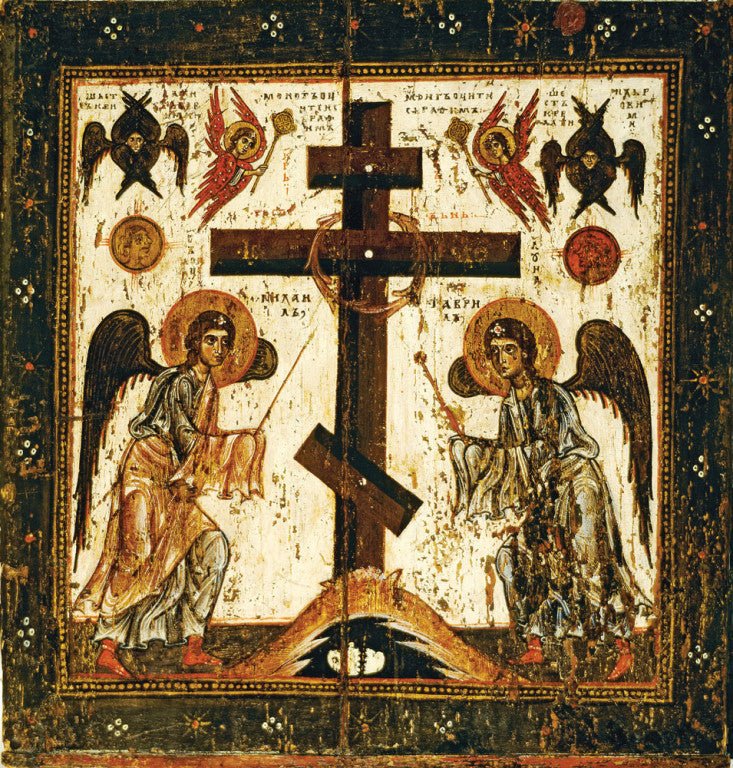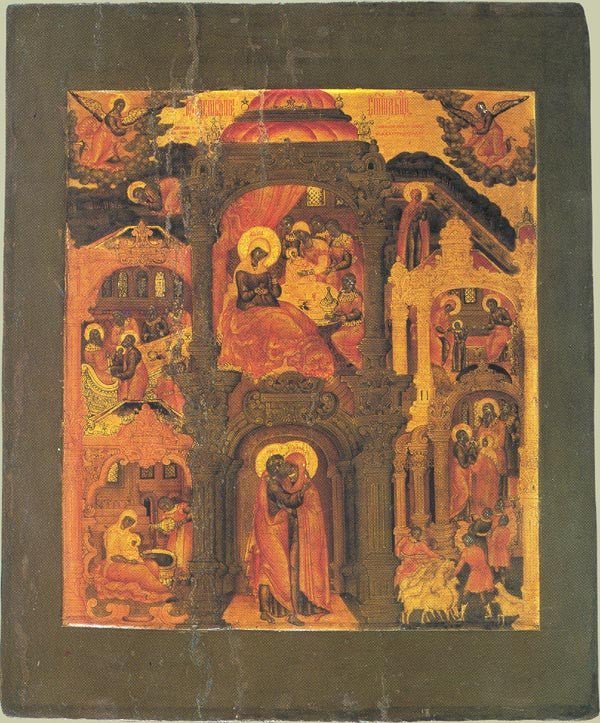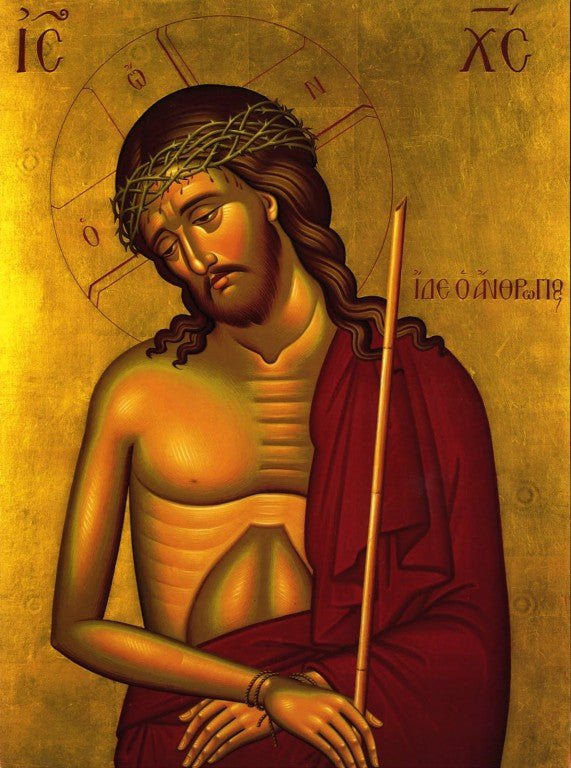Sermons & Homilies


When the pious Empress Helena discovered the Precious and Life-giving Cross of the Lord, she had it brought to the Temple of the Resurrection, where the Patriarch Macarius exalted it in the sight of all. Seeing the Cross of the Lord, all the faithful rejoiced and bowed down reverently before it, offering worship to Him Who was crucified thereon. And even today, when Orthodox Christians behold the elevation of the Precious Cross, we rejoice and cry out to the Cross as if it were alive, saying, “Rejoice, precious Cross. Help us, O life-giving Cross.”

There is no great event which is not proceeded with great longing and expectation. This Great Feast of the Nativity of the Mother of God is no exception. This first of Feasts, celebrated on the eighth day of the New Church Year, was certainly preceded by great longing and expectation. First, we have the longing of the blessed parents of the Blessed Ever-Virgin, Joachim and Anna. Finding themselves childless even in old age and thus ashamed in front of Jewish society, they pleaded with God to relieve them of the curse of childlessness, a shame which even caused Joachim to be rejected from his service at the Temple and which sent him into the wilderness to plead with the Lord. Joachim and Anna did not lose their faith or cease their prayers even when it seemed that all the law of nature was set against them because of their age. Rather, they lived and prayed with longing and the expectation of deliverance. Secondly, we have the longing and travail of the human race itself, which was until the dawn of Grace laboring under the yoke of the old law, the condemnation of the sin of our first ancestors, and the corruption of death. The people of the world had descended to such a state of moral degradation that it hardly seemed possible to redeem mankind. Indeed, it would take the very entry of God Himself, incarnate, into human history in order to save mankind inasmuch as the law was powerless to save it. Mankind, like Anna, was barren, not bringing forth fruit. The whole world was in longing, and the righteous, such as Joachim and Anna and Symeon the God-Receiver, were filled with expectation.

“Life is a time for trading,” says St. Theophan the Recluse,[1] and this is the meaning of the parable which we have read in today’s Gospel. Christ is the landowner and Christians are His disciples to whom He has given talents which are to be given back to Him with interest when he returns from the far country. Then Christ will reward to each according to their labor.

St. Ignati Brianchaninov, in his exceedingly wonderful spiritual book, The Arena, begins his advice to monastics by saying: “We shall be judged according to the commandments of the Gospel” (p. 6). Then, St. Ignati begins his next chapter by saying, “The holy monks of old called the monastic life a life according to the commandments of the Gospel. St. John of the Ladder defines a monk thus: ‘A monk is one who is guided only by the commandments of God and the word of God in every time and place and matter’” (p. 7). Then, turn the page, and the next chapter begins: “He who has based his life on the study of the Gospel and the practice of the commandments of the Gospel has based it on solid rock” (p. 8). He continues: “True Christianity and true monasticism consists in the practice of the commandments of the Gospel. Where this practice is absent, there is neither Christianity nor monasticism, whatever the outward appearance may be” (p. 10). And in page after page, St. Ignati drives the point home: the Christian life is a living of the Gospel Commandments. In fact, in the first ten chapters of The Arena, St. Ignati uses this expression nearly 50 times in 25 pages: commandments of the gospel, or gospel commandments, or evangelical commandments. And in the Gospel reading for today, Christ plainly tells us what these are: Thou shalt love the Lord thy God with all thy heart, and with all thy soul, and with all thy mind… Thou shalt love thy neighbour as thyself. On these two commandments hang all the law and the prophets.

